Under constant pressure to justify its huge investment in athletic department, theory of gift is to improve Mingus athletic fields so some Community College games are played on east side of the County
Yavapai Community College has been under constant pressure from some educational advocates in Sedona and the Verde Valley to justify spending millions of dollars on its large athletic program. All of the playing fields and facilities it uses are located in Prescott (One field leased in Prescott Valley).
Few east-side residents attend any of the College’s matches or games. One reason is an absence of public or College transportation available to transport east-siders to the sporting events, almost all of which occur on the west side of the County. Another reason is a lack of interest among east-siders in the teams as only a tiny percentage of the total number of athletes come from towns or cities on the east side of the County. Moreover, the College teams are seldom followed in local east-side media.
In an effort to justify spending millions on athletics, the College persuaded the District Governing Board at its May meeting to set aside $100,000 from its $90 plus million 2022-23 budget for Mingus Union High School in Cottonwood. According to the College, the money was intended to “invest in athletic fields to allow portion of YC season to be played in the VV.”
How the $100,000 figure was arrived at or exactly how Mingus intended to use the money is unclear. The documents provided to the public so far do not indicate Mingus made a formal request for the money. It appears more like a gift.
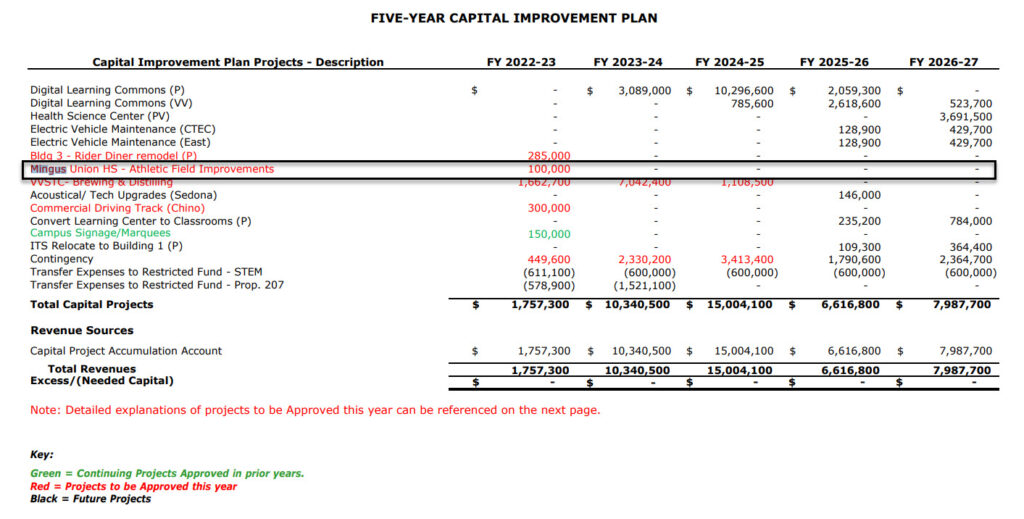
 The Yavapai Community College Governing Board approved a $91.9 million budget 4-1 for 2022-2023 at its May 17 meeting. The approved budget was 1.9% lower than the 2021-2022 budget.
The Yavapai Community College Governing Board approved a $91.9 million budget 4-1 for 2022-2023 at its May 17 meeting. The approved budget was 1.9% lower than the 2021-2022 budget.
 The salary recommendations for Yavapai Community College employees has been increased only slightly since the Administrators provided the District Governing Board with estimates in April. At the May meeting, the District Governing Board will be asked to finalize and approve a 4% across-the-board salary increase, .45% one-time bonus, and 1.3% for market adjustments, etc. for staff and faculty.
The salary recommendations for Yavapai Community College employees has been increased only slightly since the Administrators provided the District Governing Board with estimates in April. At the May meeting, the District Governing Board will be asked to finalize and approve a 4% across-the-board salary increase, .45% one-time bonus, and 1.3% for market adjustments, etc. for staff and faculty. 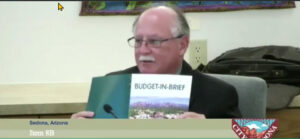
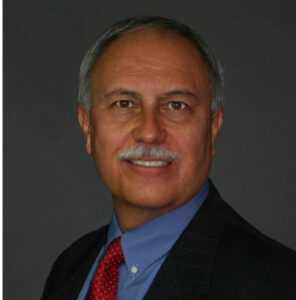

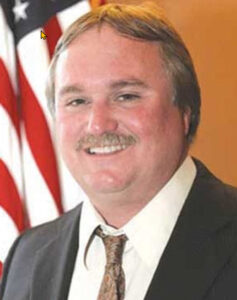


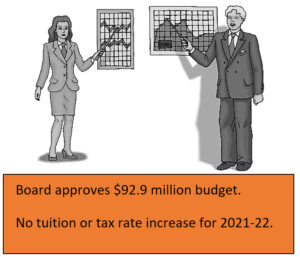 The Yavapai Community College District Governing Board (DGB) approved the College’s $92.9 million budget for 2021-2022 at its May meeting. The vote was 4-to-1 with Mr. Chris Kuknyo dissenting.
The Yavapai Community College District Governing Board (DGB) approved the College’s $92.9 million budget for 2021-2022 at its May meeting. The vote was 4-to-1 with Mr. Chris Kuknyo dissenting.